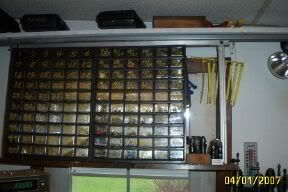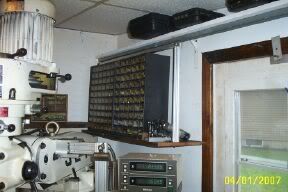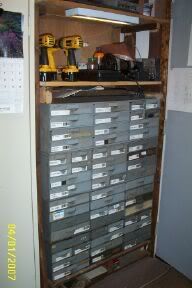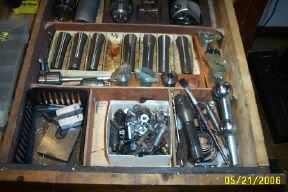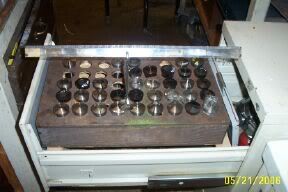I try to treat my cutters, collets, and other mill tooling like I do my firearms; in a humidity controlled environment and with enough protectant--especially on the ones I do not use all the time--to prevent even a hint of rust.
The firearms are easier since I keep them in a safe with plenty of moisture absorber. The mill and its tools are in the garage. Although I have a dehumidifier in the garage specifically for the mill, I keep the machine clean and all the bare iron surfaces sprayed with a protectant called "SlipIt."
I thought and thought about the tools and how to keep them rust free. I finally hit on this idea; it is cheap and easy, plus it adds a lot of organization to my little shop . . .

These plastic structures filled with little drawers each have a mill or collet or something in them. Each one is covered with 40 weight motor oil. The big stuff, like my drill chuck, face mill and some other items get their own container. I think you can see that they are not filled with oil, but have a paper shop rag folded over the tool. The edges of the shop rag are in the oil and the rag wicks the oil over the tool.
Russ, this one's for you . . .

This idea works for just about everything. I keep other things under gun oil wipes, such as setup stuff and my vise. I always keep a rag handy when I take a tool out of the oil.
These things are sitting in one of the middle shelves of my "lifting structure" that I turned into a BIG tool cabinent . . .

How do you keep your stuff from rusting?
--Bill
